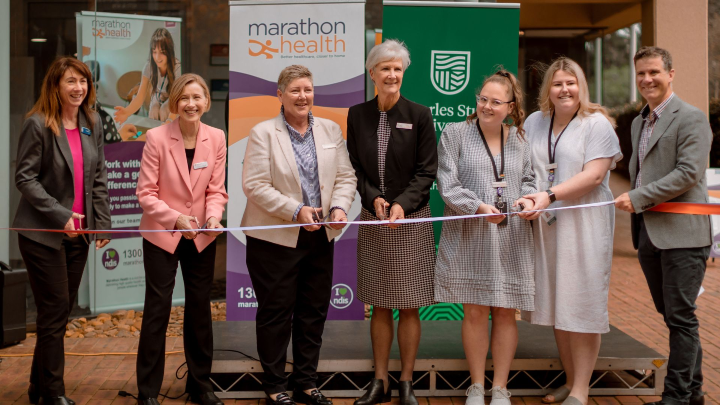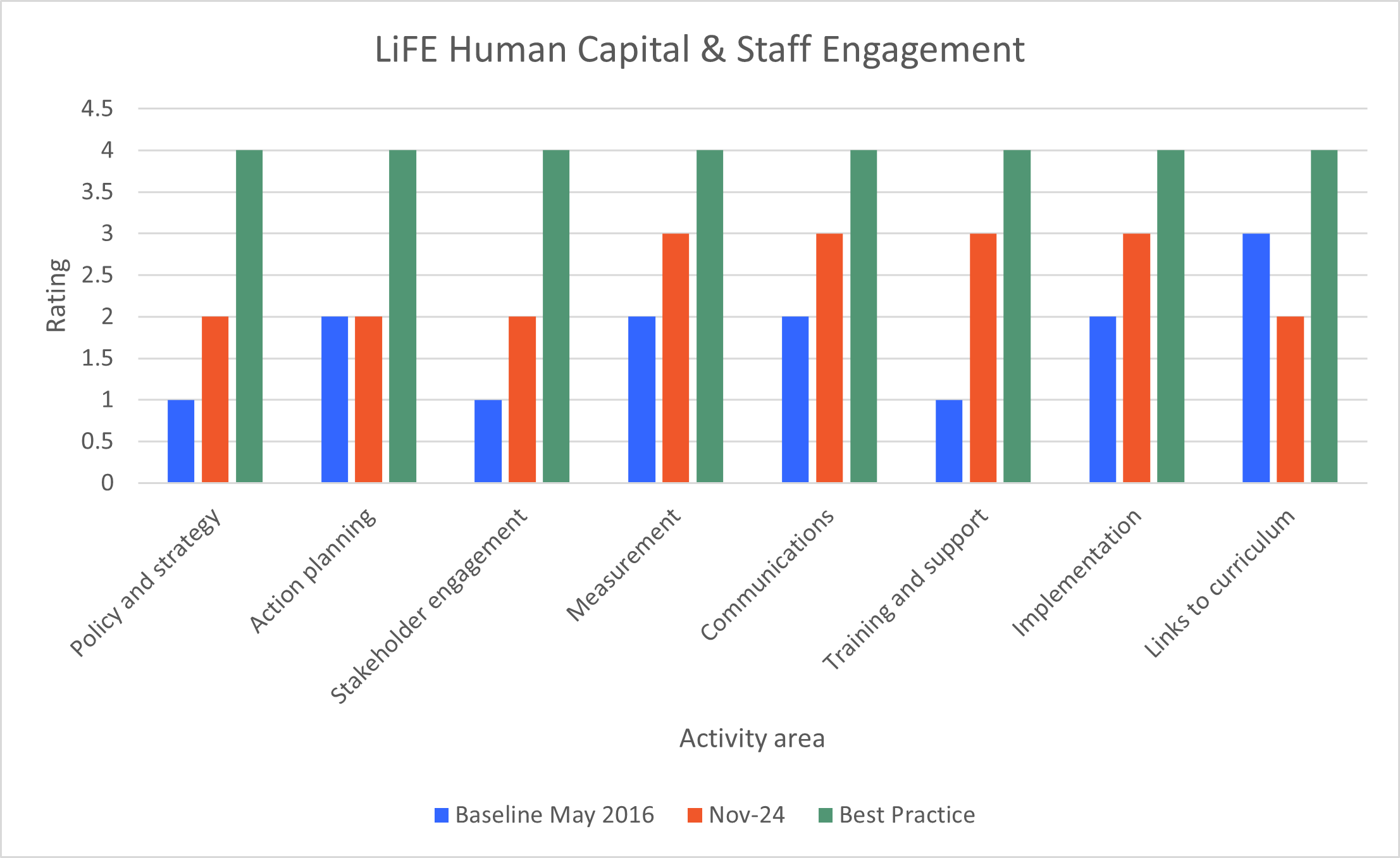Sustainability
- Home
- Locations
- What you can do
- LiFE Framework
- Sustainable Development Goals
- About us
- Grants
- Events
- Contact us
Now searching for:
Our journey towards sustainability is one necessitating change in both attitudes and behaviours; rhetoric means little without the engagement of people and the communities we create. Supporting staff in our engagement with issues of sustainability and processes of change is challenging but critical to translate aspirations into action.
There is unquestionably expertise within the Charles Sturt University staff base that remains untapped until individuals are actively consulted. Similarly, staff are often very engaged in sustainability in their personal lives but fail to engage with agendas in similar ways during their working lives. Charles Sturt University is tapping into this energy and expertise by facilitating conversations with them through the LiFE process.

Photo: Albury City Mayor Kylie King, Charles Sturt Vice-Chancellor Professor Renèe Leon, Marathon Health CEO Megan Callinan, Marathon Health Chair of the Board Annette Crothers, former Charles Sturt students Marley Pucket and Lauren McLennan and Member for Albury Justin Clancy.
This framework was benchmarked with the Human Capital Framework in 2016. The below graph illustrates our progress towards best practice across the eight (8) activity areas. The green bars reaching four (4) highlight best practice and the lower bars indicate Charles Sturt University’s baseline ratings from 2016 to present.

Sustainability at Charlies Sturt is actively engaging our staff in initiatives, research, social awareness and fostering an understanding of the University's sustainability goals.
This action plan has been paired with the Human Capital Framework.
You can get involved in lots of initiatives to make a positive contribution to sustainability at Charles Sturt University.
Sustainability ELMO online learning module. Select this course in the course catalog section of your ELMO training portal.
The ELMO module ‘Sustainability @ Charles Sturt University’ has been designed to increase staff awareness and understanding of sustainability, both at an individual and at an organisational level. This module is now available for all new staff joining our organisation and existing staff.
This module gives you an overview of how Charles Sturt University is working to be more sustainable through the Learning in Future Environments (LiFE) Index and also suggests what you can do on a personal and professional basis. It outlines what activities you may like to become involved in across all campuses.
You can get involved on campus by becoming a member of your Campus Environment Working Group. No matter which faculty or division you work within, if you have an interest in sustainability and would like to offer your on-ground knowledge, expertise and passion to help us develop initiatives, reach sustainability targets and environmental goals on campus, please get involved. These groups are casual and social, and a great way to collaborate with colleagues on campus while making an impact.
Contact sustainability@csu.edu.au. if you are interested in learning more about your Campus Environment Work Group.
Campus Environment Working Group Resources:
The ELMO module 'Graduate Learning Outcomes: Sustainable Practices' has been designed to increase awareness and understanding about how to embed sustainability into curriculum amongst Educational Designers, all course Directors, staff involved in Smart learning and staff on course committees.
This short course covers how to clearly express the GLO's in subject profiles and integrate them with the other education and design technologies (e.g. CASIMS and course space).
The module provides an outline of:
It provides guidance for:
Additional resources can be found at the Resource Hub on the GLO website including:
For some of us, one of the biggest contributors to our carbon footprint comes from the way financial institutions like our super funds and the banks we choose to deal with use our savings to fund the expansion of the fossil fuel industry.
If reducing your carbon footprint is an important consideration for you, then you may be interested to know that UniSuper have introduced investment products that are actively managed to minimise support or expansion of the fossil fuel sector. You can read more about these products via the followings summaries available on the UniSuper website.
Charles Sturt University are proud and active members of Australasian Campuses Towards Sustainability (ACTS), a leading inter-institutional body advocating for best practice sustainability within the operations, curriculum and research of the tertiary education sector. Our membership also provides staff and students access to range of member only sustainability resources.
Charles Sturt University aligns our research, policies, procedures, and other work with the UN Sustainable Development Goals (SDGs). These are the most relevant SDGs for this initiative.
